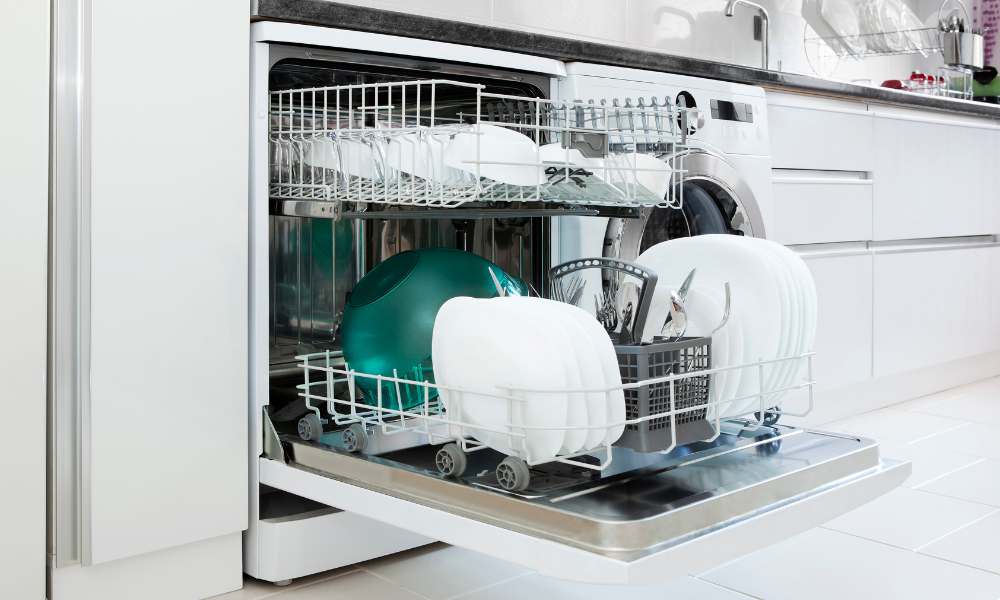A clean dishwasher is the secret to spotless dishes and a more efficient kitchen routine. Over time, grease, food debris, and hard water deposits can accumulate, reducing your dishwasher’s performance and leaving unpleasant odors behind. In this guide on “How to Clean Your Dishwasher,” we’ll share simple yet effective steps to restore your appliance’s shine and functionality. From cleaning the filter to running a maintenance cycle with natural ingredients, you’ll learn practical techniques to keep your dishwasher in top shape. Whether you’re tackling stubborn grime or looking for preventive care tips, this article will help you maintain a sparkling, odor-free dishwasher that performs like new every time.
Understanding the Need for Dishwasher Cleaning
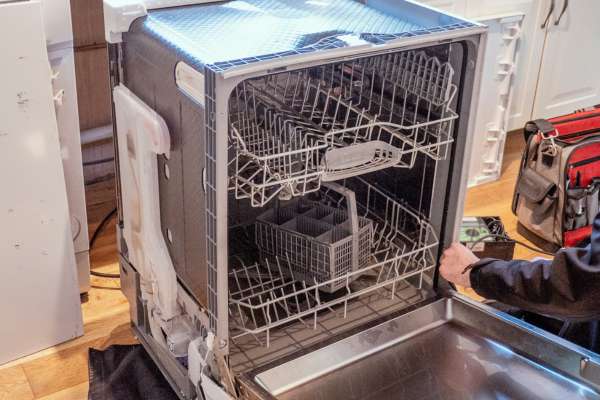
A dishwasher is your kitchen’s cleaning powerhouse, but without regular care, it can’t perform at its best. Over time, grease, food particles, and mineral deposits can build up, leading to unpleasant odors, clogged filters, and less-than-sparkling dishes. Understanding the need for dishwasher cleaning is essential for maintaining its efficiency and extending its lifespan. Ignoring routine maintenance can result in higher energy consumption and costly repairs. By addressing buildup early and regularly, you’ll ensure optimal performance while keeping your appliance hygienic and odor-free. A well-maintained dishwasher not only saves time but also delivers consistently spotless results, making it a valuable asset in your kitchen.
Signs Your Dishwasher Needs Cleaning
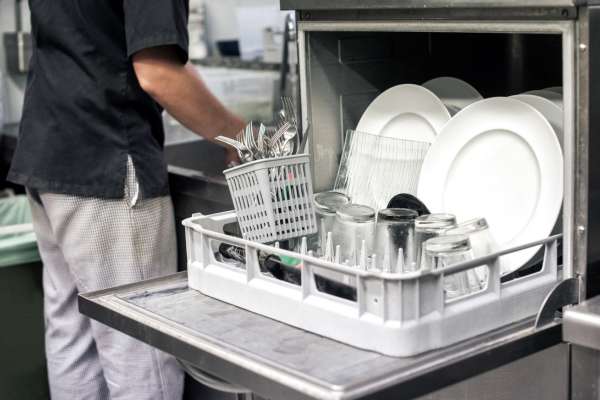
Is your dishwasher not performing as it should? Recognizing the signs of a dirty dishwasher is crucial for maintaining its efficiency. Unpleasant odors lingering after a cycle often indicate food debris or grease buildup inside the appliance. Residue on your dishes, such as spots or film, suggests that the filter or spray arms may be clogged. Poor cleaning performance, where dishes come out less than spotless, is another red flag. Ignoring these issues can lead to further inefficiencies and even shorten your dishwasher’s lifespan. Addressing these signs promptly ensures your dishwasher runs smoothly, keeps your kitchen hygienic, and delivers perfectly clean dishes every time.
Causes of Dirt and Grime Accumulation
Understanding the causes of dirt and grime accumulation in your dishwasher is key to effective cleaning. Food debris left on plates, grease from heavy dishes, and mineral buildup from hard water are the main culprits that clog filters, coat spray arms, and lead to unpleasant odors. Preparation is essential before tackling these issues. Start by emptying the Dish cleaning machine completely and gathering necessary supplies like a soft brush, vinegar, and baking soda. Don’t forget to turn off the power to ensure safety. Proper preparation and awareness of grime sources will make the cleaning process efficient, helping your Dish cleaning machine perform better and last longer.
Gathering the Right Tools and Supplies
To effectively clean your dishwasher, gathering the right tools and supplies is a must. Start with a soft brush to scrub away debris from hard-to-reach areas without causing damage. White vinegar works wonders for breaking down grease and limescale, while baking soda helps eliminate stubborn stains and odors. A microfiber cloth is essential for wiping surfaces without leaving streaks or scratches. Avoid using harsh chemicals or abrasive tools that could harm the dishwasher’s components. Having these simple, affordable supplies ready will make the cleaning process seamless, ensuring your dishwasher stays in top condition and delivers spotless, hygienic results with every wash.
Cleaning the Dishwasher Filter
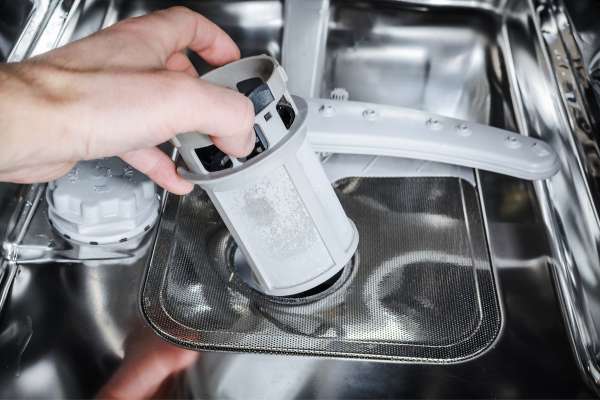
Cleaning your dishwasher filter is a crucial step to maintaining optimal performance. Start by locating the filter, typically at the bottom of the Dish cleaning machine , and carefully removing it. Avoid using harsh tools or excessive force to prevent damage. Rinse the filter under warm water to remove food debris and grease, using a soft brush for stubborn residue. Ensure all particles are cleared before reinstalling the filter securely. Neglecting this step can lead to clogs and reduced cleaning efficiency. Regularly cleaning the filter not only improves your dishwasher’s performance but also helps extend its lifespan, ensuring every wash leaves your dishes spotless and sparkling.
Scrubbing the Interior Walls and Spray Arms
It comes to “How to Clean Your Dishwasher,” scrubbing the interior walls and spray arms is a critical step. Avoid using abrasive tools or harsh chemicals that can damage the surfaces. Instead, use a soft brush or sponge to gently scrub away grime and residue. Focus on the spray arms, checking for clogs in the nozzles that can reduce water flow. Use a toothpick or small brush to clear any blockages carefully. Wipe down the interior walls with a damp cloth soaked in a mild detergent or vinegar solution to remove buildup. This simple routine ensures optimal performance and a clean, fresh-smelling Dish cleaning machine after every cycle.
Cleaning the Door Seals

Cleaning the door seals of your dishwasher is essential to maintain a proper seal and prevent mold and grime buildup. Focus on wiping the rubber gaskets carefully with a damp microfiber cloth, targeting areas where dirt accumulates. Avoid using abrasive cleaners or rough scrubbing tools, as they can damage the seals and compromise their effectiveness. For stubborn mold or grime, a mixture of mild detergent and warm water works wonders. Be sure to dry the seals thoroughly after cleaning to prevent moisture-related issues. Regularly checking and cleaning the door seals ensures your Dish cleaning machine stays efficient, hygienic, and free from unwanted odors.
Running a Cleaning Cycle
Cleaning your dishwasher, running an empty cycle is essential for removing hidden residues and lingering odors. Avoid using harsh chemicals that can damage the appliance; instead, opt for natural cleaners like white vinegar. Place a cup of vinegar on the top rack and run a hot water cycle to dissolve grease, food particles, and mineral deposits. For advanced cleaning, sprinkle baking soda on the bottom of the Dish cleaning machine and run another short cycle to tackle stubborn stains and deodorize the interior. Regularly performing these steps will not only ensure a spotless Dish cleaning machine but also keep it running efficiently, extending its lifespan while enhancing cleaning performance.
Addressing Stubborn Stains and Hard Water Deposits
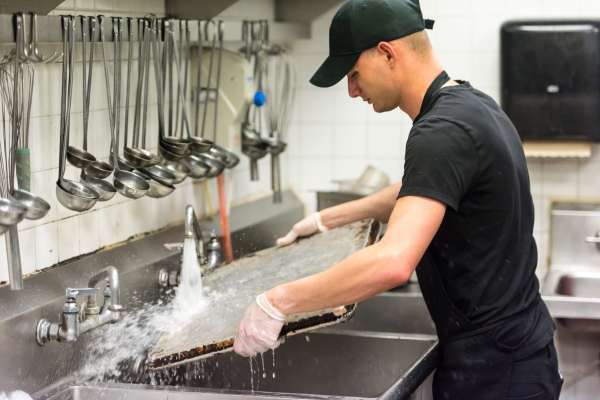
Stubborn stains and hard water deposits can compromise your dishwasher’s performance, but simple remedies can restore its shine. Use baking soda to scrub away tough stains—its gentle abrasiveness works wonders without damaging surfaces. For hard water deposits, run a cycle with vinegar to break down mineral buildup effectively. To deodorize your Dish cleaning machine, sprinkle baking soda on the interior and run a short cycle, or place a bowl of vinegar on the top rack during a hot wash. These natural solutions are not only eco-friendly but also keep your appliance smelling fresh and clean. Consistent care ensures a spotless, odor-free Dish cleaning machine that performs efficiently every time.
Maintenance Tips
Regular maintenance is essential to keep your dishwasher running smoothly and prevent buildup over time. Create a routine cleaning schedule that includes wiping down the door seals, checking and cleaning the filter, and inspecting the spray arms for clogs. Avoid letting food debris accumulate by rinsing dishes before loading. Run an empty cleaning cycle with vinegar or a Dish cleaning machine cleaner monthly to eliminate grease and hard water deposits. Check for leaks or unusual noises to address issues early. By incorporating these preventative measures, you ensure your Dish cleaning machine stays clean, performs efficiently, and lasts longer, reducing costly repairs and improving your
Conclusion
Maintaining a clean dishwasher is key to ensuring spotless dishes and an efficient appliance. By following the steps outlined in this guide on “How to Clean Your Dishwasher,” you can easily remove grime, food debris, and hard water buildup, keeping your Dish cleaning machine in top condition. Regular cleaning not only improves its performance but also extends its lifespan, saving you time and money on repairs or replacements. Incorporating simple maintenance habits, such as routine filter cleaning and running a monthly cleaning cycle, ensures your Dish cleaning machine remains hygienic and odor-free. Take these steps today to enjoy a consistently fresh and efficient kitchen experience. Share these tips to help others keep their dishwashers sparkling clean!

